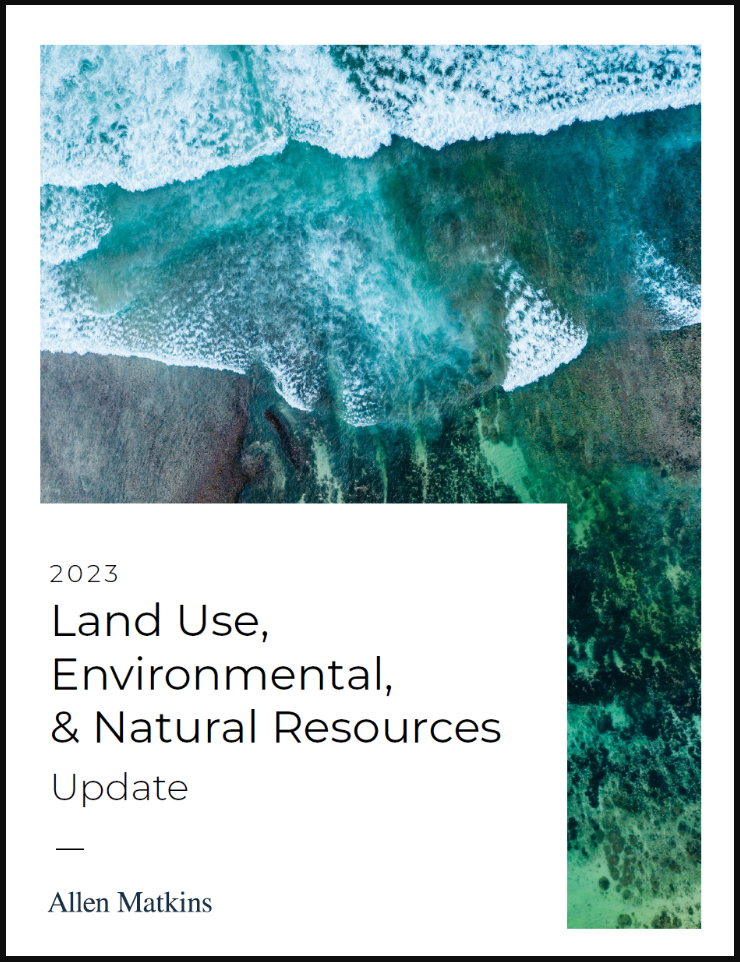News & Insights
2023 Land Use, Environmental, & Natural Resources Update

Repurposing San Francisco Office Buildings for New Housing
Land Use
5.01.23
New legislation recently introduced by San Francisco Mayor Breed and Supervisor Peskin, is aimed at revitalizing commercially-zoned properties in the greater downtown area. The intent of the legislation is to “address twin problems of under-utilized office space and lack of affordable housing available in San Francisco.”
COMMERCIAL RESIDENTIAL ADAPTIVE REUSE PROGRAM
The proposed Commercial Residential Adaptive Reuse program (“Program”) would apply to qualifying residential conversion projects proposed on or before December 31, 2028. To qualify, the project must:
- Include a change of use of existing gross floor area from a non-residential use to a residential use;
- Be located in a Commercial (“C”) zoning district east of (or fronting) Van Ness/South Van Ness Avenue and north of Townsend Street and outside of the Group Housing Special Use District;
- Limit any expansion of the existing building envelope to 20% of the existing gross floor area and one additional vertical story; and
- Not propose a density bonus under the State Density Bonus Law pursuant to Planning Code Sections 5 or 206.6. A density bonus could be proposed pursuant to the HOME-SF Program or 100 Percent Affordable Housing Program, subject to the limitations above.
As summarized in our prior legal alert, the Program would exempt qualifying conversion projects from otherwise applicable Planning Code requirements for residential projects.
Without these exemptions, qualifying residential conversion projects would otherwise require either Planning Commission or Zoning Administrator approval of waivers of or modifications to these requirements after a noticed public hearing based on specified findings.
The San Francisco Building Official and Fire Code Official would also be directed to prepare an alternative buildings standards manual for qualifying residential conversion projects, which would include, among other things, alternative standards if technical infeasibility is present. This is also critical because there are well-documented design challenges associated with the conversion of existing commercial buildings to residential use due to required compliance with the strict provisions of the San Francisco Building Code.
RELAXED PLANNING CODE REQUIREMENTS IN COMMERCIAL ZONING DISTRICTS
The proposed legislation includes numerous Planning Code amendments to “support existing and attract new businesses Downtown, and streamline approvals to draw consumers back Downtown.” As summarized in our prior legal alert, these changes would include modified Planning Commission approval requirements, additional permitted uses, relaxed ground floor active and commercial use requirements, and other modifications.
DEVELOPMENT IMPACT FEE WAIVERS
New legislation recently introduced by Supervisors Dorsey and Safai would waive development impact fees for qualifying residential conversion projects, with the exception of any in-lieu fees proposed to satisfy inclusionary affordable housing requirements. Development impact fees associated with any non-residential uses proposed as part of the project would not be waived.
Authors
Partner
Partner
RELATED SERVICES
RELATED INDUSTRIES
Allen Matkins Leck Gamble Mallory & Natsis LLP. All Rights Reserved.
This publication is made available by Allen Matkins Leck Gamble Mallory & Natsis LLP for educational purposes only to convey general information and a general understanding of the law, not to provide specific legal advice. By using this website you acknowledge there is no attorney client relationship between you and Allen Matkins Leck Gamble Mallory & Natsis LLP. This publication should not be used as a substitute for competent legal advice from a licensed professional attorney applied to your circumstances. Attorney advertising. Prior results do not guarantee a similar outcome. Full Disclaimer




